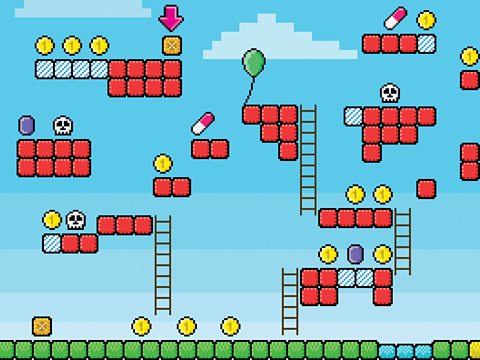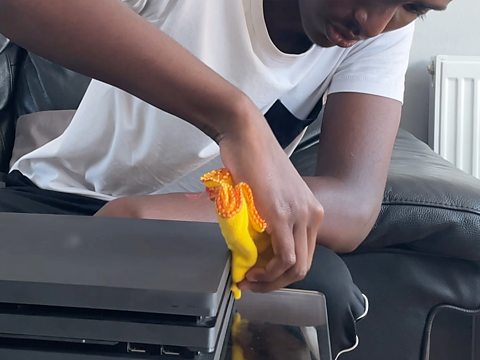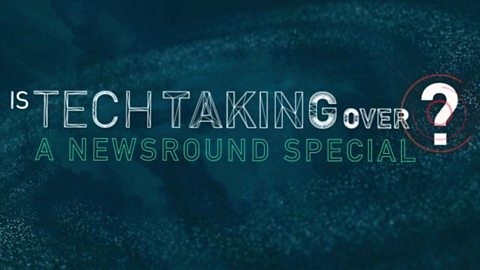
Welcome to The Regenerators.
What happens to your devices when you throw them away?
That’s what e-waste (electronic waste) is all about. It’s the disposal of any electronic devices and accessories like plugs, phones, computers, televisions and games consoles.
According to the World Economic Forum, e-waste is the fastest-growing type of waste in the world and it’s a major problem for the environment. While most electronic products can be safely recycled, other processes to get rid of electronics can create dangerous substances. When broken or unwanted electronics are dumped in landfills, toxic substances like lead or mercury can go into soil and water.
Teenagers Amy, Nayan, Simeon and Noah share their tips on how you can reduce your e-waste and energy use.
How can you look after, reuse and recycle devices to reduce e-waste?
Teenagers Amy, Nayan, Simeon and Noah share their tips on how you can reduce your e-waste and energy use.
Nayan: Gaming really is amazing, you can't deny it.
But we never really think what this means for our environment. How big of a negative impact does it have on us and how we live? E-waste or electronic waste is a massive polluter.
Each year roughly 50 million tonnes of waste is disposed of and under 20% is collected and recycled each year. So what can we do to tackle the impact of e-waste?
Noah: One of the things we do to try to make a difference is use these old portable gaming consoles instead of the latest technologies because they're still just as fun and can entertain you for hours on like a long car or bus ride.
We've also lent these out to our cousins and our family and they've had them for quite a while. This means that like more people get enjoyment out of them and it just extends the life that bit more, while also meaning they don't buy their own new technology, which decreases the amount of waste.
Amy: One of the things that I tried to do to reduce my carbon footprint when it comes to technology is to buy second-hand or refurbished devices like my phone or laptop. When my devices come to the end of their lives, I'll probably look into recycling mine.
So sending it away so that the materials that are used to produce it can be recycled into new technology.
Nayan: To start off we need to take care of our devices, cleaning them regularly by keeping them dust free or wiping them down, extends their life. Having them repaired instead of throwing them away, would also help reduce electronic waste.
Amy: I think that it can be quite hard to reduce your usage of tech if you love playing games and you love watching TV every day and that's something you're used to. But I think that even spending just half an hour to start with more outside or reading a book instead and challenging yourself to do that maybe once a week and then building it up, then taking those small steps can really add up.
**Nayan:**Whether it is a game or a device.
Noah: It's just like the expected that you would have like the latest.
Nayan: Newer isn't particularly better all the time, or even if it is better, it's usually just a touch better than the previous generation. People just get tricked into saying this is the new one so it's obviously better, I'll go and get this one.
Re-use, re-use, re-use

It might be fun to dig out a retro games console from the back of your cupboard and see how much you still enjoy playing some of your old favourites.
You can also lend or share it with family members or friends to make the most out of your device.
Buy second-hand
When it’s time to get a new phone, tablet or games console, look out for second-hand or refurbished options.
Refurbished electronics usually come with a warranty and are often in perfect working condition. They might have a few small scratches, but they are also usually much cheaper!
Take care of your devices

Looking after your devices can help them last longer.
Whether it’s a phone or games console, dust them down regularly, use a case to protect them if you can and try not to overcharge them – as soon as the battery is at 100%, disconnect your device from the charger.
Susha Sooral, Communications Coordinator from environmental charity Hubbub, says that avoiding bending or stretching charging cables can prevent them from fraying. You could try wrapping your chargers with electrical tape to help keep them strong and safe.
Unfortunately, half of all e-waste is made up of electricals that are actually still in working condition, but may just need repairing. If something’s wrong with your gadget, see if there’s a repair café or shop near you and try to fix it before putting it in the bin.

Keen to reduce the environmental impact of your devices even more?
Check out these tips below.
Turn it off - the easiest and cheapest thing you can do to reduce your energy use is to remember to turn off your digital devices completely (at the wall) after you’ve finished using them – don’t leave them on standby.
Say no to wireless - wired earphones are generally more durable than wireless ones because you don’t have to be dependent on batteries within the product to keep it going for longer. Wired earphones free, too (if they came with your original device).
Switch off your camera during online calls - online calling uses a lot of energy. Research has suggested that an hour of video calling emits up to 1kg of carbon dioxide and uses up to 12 litres of water. The good news is you could reduce the carbon footprint from your online calls by 96% if you switch off your camera.
Make a difference
Discover more about the planet and how to protect it with the BBC.
Four ways to give back to nature through rewilding
THE REGENERATORS

Take a digital walk
OWN IT

Is tech taking over?
NEWSROUND

Return to the homepage
Back to The Regenerators
BBC BITESIZE
